Scotland's finance secretary John Swinney threatens to block new powers
- Published
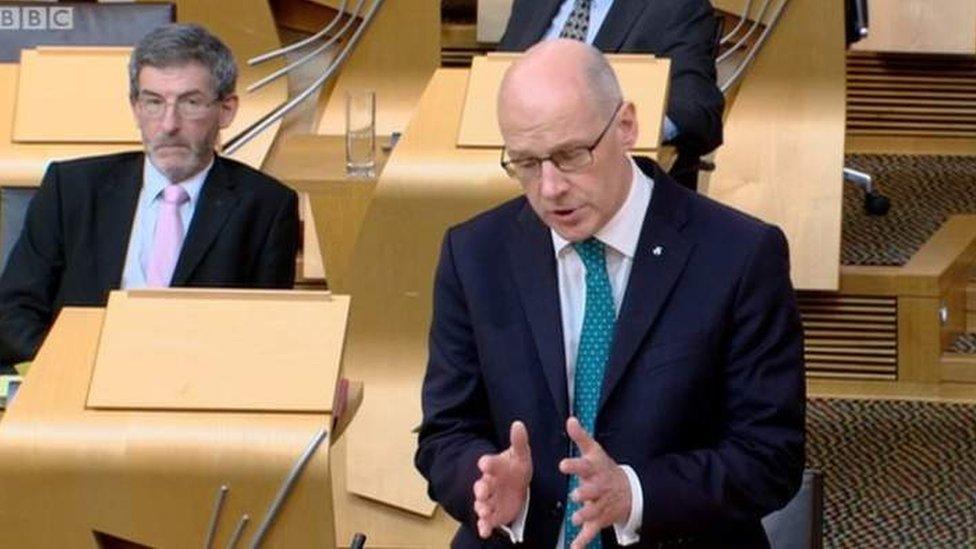
John Swinney said the Scotland Bill did not deliver what had been promised
John Swinney has warned that the Scottish government would block new powers for Holyrood unless there was an acceptable deal on money.
The finance secretary said it would be wrong to strike a bargain which cut Scotland's budget.
Mr Swinney said a "fiscal framework" needed to link Scotland's budget to economic performance.
But the prime minister has insisted "unprecedented devolution on taxes" was being sent to Holyrood.
David Cameron made his comment during clashes with the SNP's Westminster leader Angus Robertson at PMQs in the House of Commons.
In the Scottish Parliament, Mr Swinney said the Scottish government should be given "flexibility and choice to pursue its own distinct policies".
Scotland's deputy first minister was speaking as he led a debate on Westminster's Scotland Bill.
The bill is the legislation drawn up to deliver the recommendations of the Smith Commission, which was set up after the "No" vote in the independence referendum last September.
The commission was intended to deliver the pledges made in the Vow, a last minute pledge by the three main Unionist parties exactly a year ago to give Scotland widespread new powers over tax and welfare.
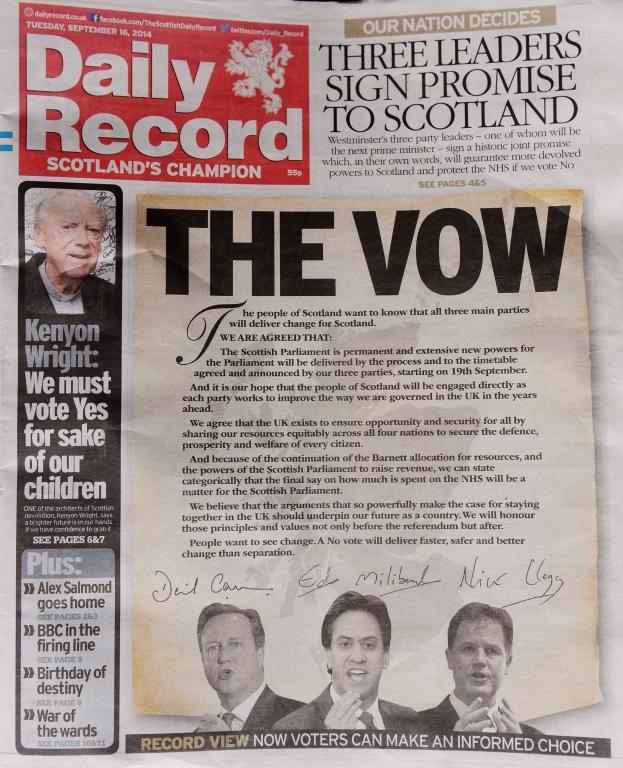
The Vow was penned by the three main Unionist party leaders ahead of the referendum
Mr Swinney told MSPs that the Smith Commission did not meet the promises of the Vow and the Scotland Bill did not at present fully implement the recommendations of the commission.
He called for the UK government to "move significantly" when the Scotland Bill returns to Westminster for its Report Stage and outlined areas where the bill "fell short" such as social security, employment programmes and the Crown estate.
The MSP also complained that the bill allowed UK ministers to veto proposed changes to Universal Credit and energy schemes.
Mr Swinney said there must be a "fiscal framework" to ensure further devolution provides the right incentives, linking the Scottish government's budget to Scottish economic performance.
He told the chamber: "We should retain the rewards of our success, as we will bear the risks.
"When the Scottish economy outperforms that of the rest of the UK, our spending power should increase."
Mr Swinney added: "I want to make very clear again that the Scottish government will not recommend that this parliament gives consent to the bill without an agreed fiscal framework that is fair to Scotland.
"I would have no hesitation to refuse to recommend a proposal that did not provide us with the ability to use our powers properly and flexibly to support the people of Scotland, to address our own priorities and to improve our economy."
Scottish Labour's democracy spokeswoman Claire Baker said her party wanted the devolution of the work programme, which seeks to get the long-term unemployed into work.
She said the Scotland Bill needed to be stronger and did not meet her expectations.
Ms Baker said her party would put forward amendments to the bill at Westminster and was committed to making sure the Scottish Parliament became one of the strongest devolved parliaments in the world.
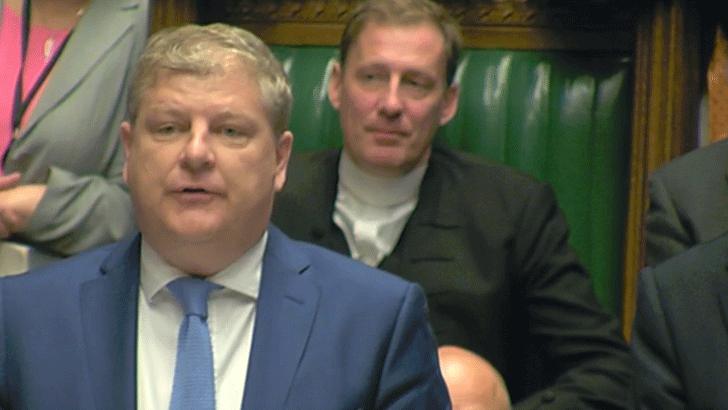
Angus Robertson said the Vow had not been delivered
The debate followed clashes at prime minister's questions when Mr Robertson said the "Vow", made in the closing days of the independence referendum campaign last year, had not been delivered by the Tory government in Westminster.
He added that even former Labour prime minister Gordon Brown said delivery was "falling short".
Mr Cameron said: "We have delivered on all of the promises that we made.
He said: "We said we would introduce a Scotland Bill, we introduced a Scotland Bill.
"We said unprecedented devolution on taxes, there has been unprecedented devolution on taxes.
"We said that we would provide those welfare powers, we have given those welfare powers."
Mr Cameron said the SNP should stop talking about processes and "start telling us what taxes you are going to put up, what welfare changes you are going to make".
- Published16 September 2015
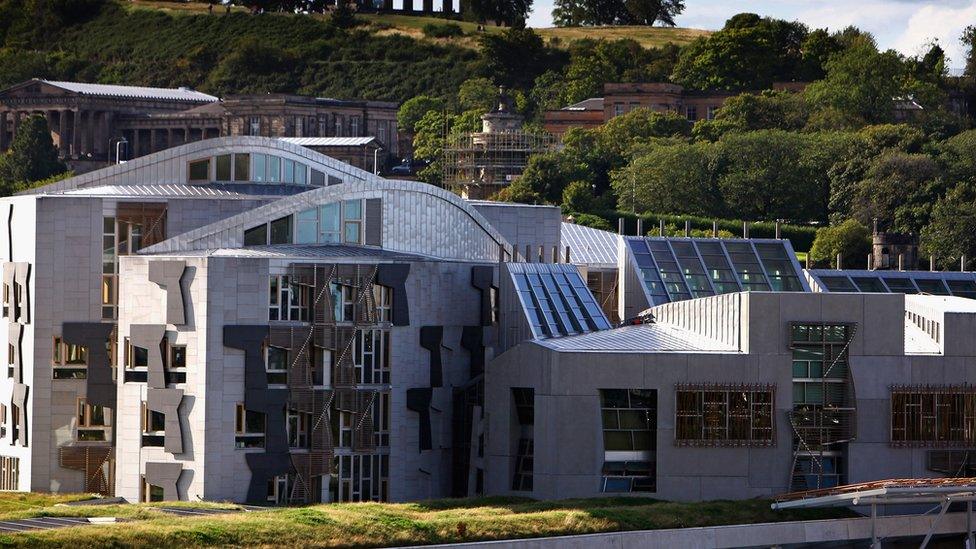
- Published4 September 2015
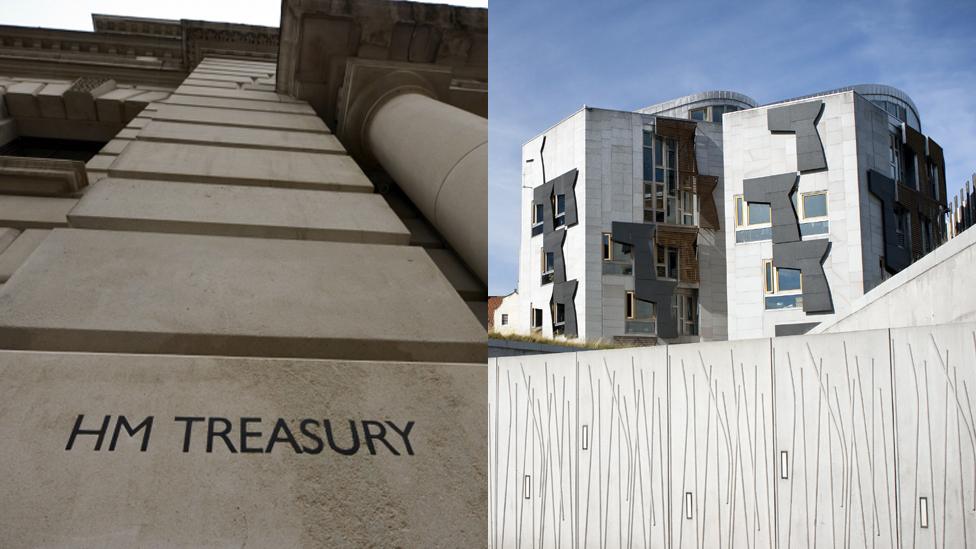
- Published8 June 2015
